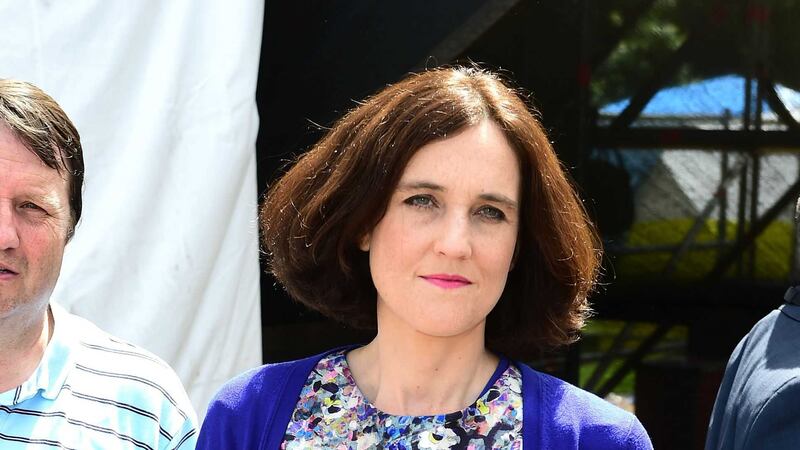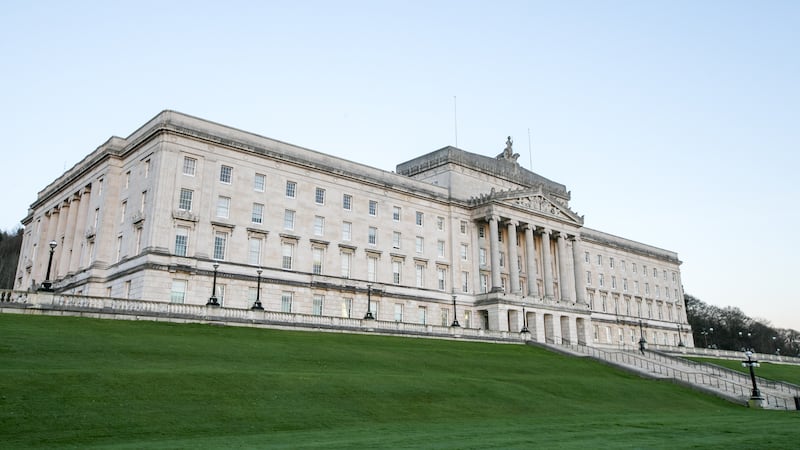THERESA Villiers has rubbished claims that the Brexit vote could be vetoed by Northern Ireland and Scotland's devolved administrations.
The secretary of state insisted Westminster had the final say and that there was no prospect Stormont or Holyrood blocking UK withdrawal from the EU.
Ms Villiers was speaking after SNP leader Nicola Sturgeon and Scotland's first minister said she would ask members of the Scottish parliament to refuse to give their consent for a Brexit.
Like Northern Ireland, Scotland voted to remain in the EU, whereas there were majorities for severing ties with Brussels in England, Wales and, as a consequence, UK as a whole.
In an interview with the BBC on Sunday, Ms Sturgeon raised the prospect of the Scottish Parliament voting against a legislative consent motion that would pave the way for Britian's exit from the EU.
Deputy First Minister Martin McGuinness and SDLP leader Colum Eastwood have also indicated that they will be exploring ways to ensure the north is not isolated from the EU as a consequence of last week's vote.
Mr McGuinness, who in the immediate aftermath of the referendum result called for a border poll, appeared to roll back from his immediate demand yesterday, saying a more pressing priority was maintaining the north's relationship with Europe.
"There needs to be special arrangements which take account of the democratically expressed wishes of the people of the north of Ireland and the people of Scotland who wish to remain and maintain our contacts and ability to work with very senior officials and governmental authorities within Europe," he said.
SDLP leader Colum Eastwood told The Irish News that he had yet to be convinced that the north would be leaving the EU.
"I'm not conceding this yet by a long way," he said.
"The people of the north have voted very clearly for us to remain and it is incumbent on us to use all the parliamentary tools at our disposal and our friends in Europe to ensure the people's wishes are listened to."
The Foyle MLA said the Leave campaign had failed to think through the consequences of a Brexit.
"I don't think they expected to win and now they are in a situation where they don't know how to deliver this," he said.
Mr Eastwood said those favouring withdrawal from the EU should not be allowed "to ride roughshod over the democratic process in Northern Ireland".
However, Alliance deputy leader Naomi Long, who campaigned for Remain, said the devolved administrations could protest against Brexit but she conceded primacy rested with Westminster.
"So let's not kid ourselves - if parliament sets its face to do this, whilst we can put up a strong argument against it, ultimately parliament remains primacy," the East Belfast MLA said.
But Ms Villiers, who has again insisted that there will be no hardening of the border in the coming years, made clear that Westminster held the ultimate authority in regard to enacting Brexit.
"In the weeks and months ahead we will be working with both the Scottish government and the Northern Ireland executive on all these matters," Ms Villiers said yesterday.
"But ultimately it is parliament's decision whether we repeal the 1972 European Communities Act or whether we don't."
DUP economy minister Simon Hamilton conceded that the region's particular relationship with the EU had to be reflected in the Brexit negotiations.
"I think the negotiations that are going to start at some point in the future, particularly when there is a new prime minister in place, will have an involvement from Northern Ireland, just as they will from Scotland and Wales and England, the prime minister has made that perfectly clear - that is the right way to do that," he said.








